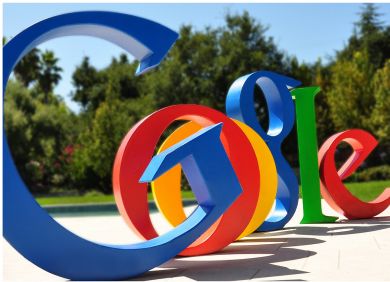

Google’s ‘vision’ of the future has been offered up in a video that showcases the search engine giant’s Project Glass plans, after months of speculation.
The futuristic glasses offer an augmented reality view of the world, in that the glasses present visual information in front of your eyes, such as the temperature outside, time, and even messages from friends.
A two-and-a-half minute promotional video the Project Glass team posted on YouTube, which takes viewers on a tour of a user’s daily routine as he makes breakfast, video chats with his girlfriend and travels around New York City, gives an impression of what the technology is capable of.
“We think technol
Photos on the project’s Google Plus page also show what the final creation – a sleek, white, paper-thin geek chic frame – could look like. The post also asks interested parties to follow along as they share some of their ideas and stories behind the development of the technology. “We’d love to hear yours, too,” the post implores. “What would you like to see from Project Glass?” But perhaps the question Google should be asking is, “Do you want to see anything from Project Glass?”
Let’s rewind: The idea is not exactly new. Putting aside countless science fiction creations, just five years ago California design and engineering firm Karten Design unveiled the Assisted Living Contact Lens, part of their “Cautionary Visions” concept project showcasing futuristic technology ideas gone awry. The lenses functioned as a “full-time, inescapable, never-leave-your-side personal assistant” that included features like a GPS map overlay, diet filters and other “helpful” reminders. Another concept from the project, the wearable Personal Viewing System (PVS), took things a step further with a design akin to wearing an iPad strapped around your neck.
Karten design principal Stuart Karten says although the technology for these types of technologies has now arrived, he isn’t at all sure people would adopt them.
“From my perspective, I don’t think that fits into people’s ceremonies. It’s like the whole idea of people talking to themselves [on Bluetooth]. I don’t think it fits into how people interact with each other,” he says, pointing out consumers are already distracted enough with iPhones and BlackBerry devices constantly in hand. “You’ve got muggings, people getting into accidents, it’s horrible. It’s not a matter of how much money it costs or how small it can be – is it what people actually want and do they actually need it?
Despite his reservations about the use of technology or Google’s ability to push it on the public – he doesn’t think 3D technology is going to take off, either – he admits concepts like Project Glass function as a perfect “show car” for Google.
“It allows them to aggregate multiple parts of their ecosystem – Android phones, Google Maps, their social networking site, Google Plus,” he says. “It’s a way for them to say, ‘This is how we can aggregate all the places that touch your life. And they have the content to feed to it.”
Do you know Google’s secrets? To find out, take our quiz.
American space agency prepares for testing of Boeing's Starliner, to ensure it has two space…
As UK and Europe develop closer military ties, European Commission says it will invest €1.3…
Zuckerberg seeks to revive Facebook's original spirit, as Meta launches Facebook Friends tab, so users…
Notable development for Meta, after appeal against 2021 WhatsApp privacy fine is backed by advisor…
First sign of shake-up under new CEO Lip-Bu Tan? Three Intel board members confirm they…
Trump's nominee for SEC Chairman, Paul Atkins, has pledged a “rational, coherent, and principled approach”…